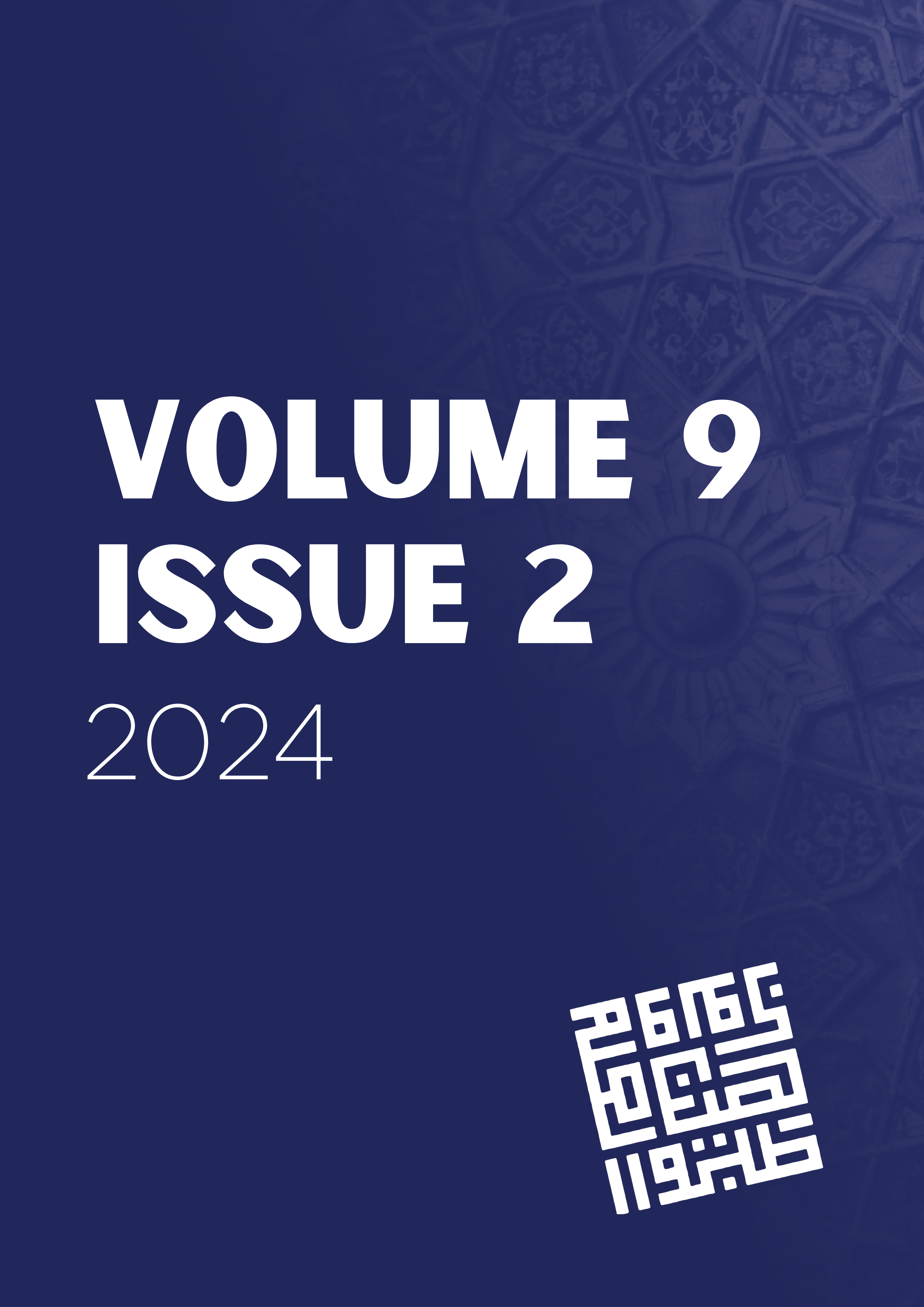Natural Sciences in the Era of ‘Decline’: Discovering Manuscripts at Jāmi’ Al-Azhar

Abstract
This article critically examines the commonly held narrative of decline, in relation to the development of natural sciences in Islamic history. The period between the 16th and 19th centuries CE is often referred to as a time of decline for Islamic civilisation. Conversely, this period is also considered an important time for the European Renaissance and its modern age, including in terms of natural sciences. In this article, I argue that, while attempts to periodise Islamic history can facilitate better understanding of historical developments, they are often significantly influenced by underlying biases aimed at exerting dominance over the Muslim world. I have found the narrative of decline is closely connected to the linear movement theory of history. Furthermore, Egyptian modernists used the decline narrative to criticise al-Azhar without acknowledging its scholars’ support for progress. Lastly, the narrative of decline built by modernists against al-Azhar for not paying attention to the natural sciences needs to be critically reviewed, particularly by referring to manuscripts written by al-Azhar scholars related to natural sciences, such as medicine, algebra, astronomy and engineering from the 16th to 19th centuries as a counter- narrative of decline.
Keywords
Natural Sciences, Jāmi’ al- Azhar, Decline, Egypt, Islamic Intellectual History
References
- Aftab, Macksood. “Ghazali, Islamophobia and the Myth of Islamic Decline.” Muslim Philosophy, n.d. https://www.muslimphilosophy.com/aftab/wp-content/uploads/2013/12/ The-Myth-of-Islamic-Decline.pdf.
- Al-Ghazālī, Abū Hāmid. Ihyā’ Ulūm al-Dīn [Renewal of Religious Sciences]. Vol. 1. Darul Hadits, n.d.
- Al-Ilmiyyah, Tsāqifat al- Safā. “Electronic Library of Jāmi’ Al- Azhar.” Masyikhah al-Azhar: Maktabah Syāmilah, 2013.
- Al-Khalīf, Iwād, and Qāsim Alī Sa’īd. Al-Jāmi’ūn Bayna l-Ulūm l-Shar’iyya Wa l-Ulūm al- Tajribiyya [The Integrators of Sharia Sciences and Empirical Sciences]. Dubai: Jāiza Dubay al-Dawliyya li l-Qur’ān al-Karīm, 2015.
- Al-Zaidī, Mufid. Madkhal Ilā Falsafat Al-Tārikh [An Introduction to the Philosophy of History]. Amman: Darul Manahij, 2006.
- Badawi, Abdurrahman. Mausūah Al-Falsafah. Vol. 2. Beirut: Muassasah Arabiyyah liddirasat wan nasyr, 1984.
- Benalhasan, Badrān. Al-Khoshāis al-Amah Li al-Hadhārah al-Gharbiyyah Inda Mālek Bennabī. al-Jāmi’ah al-Ālamiyyah Māliziyya, 1998.
- De Bellaigue, Christopher. The Islamic Enlightenment. The Struggle between Faith and Reason: 1798 to Modern Times. New York: Liveright, 2017.
- Gesink, Indira Falk. Islamic Reform and Conservatism: Al-Azhar and the Evolution of Modern Sunni Islam. I. B. Tauris, 2010. https://doi.org/10.5040/9780755623891. DOI: https://doi.org/10.5040/9780755623891
- Gesink, Indira Falk. “Islamic Reformation: A History of Madrasa Reform and Legal Change in Egypt.” Comparative Education Review 50, no. 30 (2006): 325–345. DOI: https://doi.org/10.1086/503878
- Gutas, Dimitri. Greek Thought, Arabic Culture: The Graeco-Arabic Translation Movement in Baghdad and Early Abbasid Society. New York: Routledge, 1998.
- Hamdī Zaqzūq, Mahmūd. Dirasāt Fī Al-Falsafah Haditsah [Studies in Modern Philosophy]. 2nd ed. Cairo: Dar al-Tiba’at al-Muhammadiyyah, 1998.
- Hamid, Hamid Fahmy. “Building the Civilization of Science in Islam.” Public Lecture, Institute for the Study of Islamic Thought and Civilizations (INSIST), 2023, January 7.
- Hitti, Philip K. History of the Arabs. 10th ed. London: Higher and Further Education Division Macmillan Publishers Ltd, 1984.
- Hooykaas, Reijer. “The Rise of Modern Science: When and Why?” The British Journal for the History of Science 20, no. 4 (1987): 453–73. DOI: https://doi.org/10.1017/S0007087400024225
- Iqbal, Muzaffar. The Making of Islamic Science. Malaysia: Islamic Book Trust, 2009.
- Maiwan, Mohammad. “Cosmology of History in the Philosophy of History: Schools of Thought, Theories, and their Developments.” Indonesian Journal of Humanities 3, no. 2 (2013), 160–70.
- Mostafa, Noha. “The Modernization of Egypt in the Nineteenth Century: A Comparison with the Japanese Case.” Titech Studies in Science, Technology and Culture 18 (2015): 110–20.
- Nasr, Seyyed Hossein. Islam, Sains, Dan Muslim. Yogyakarta: IRCiSoD, 2022.
- Nasr, Seyyed Hossein. Knowledge and the Sacred. New York: Crossroad, 1989.
- Önder, Murat, and Fatih Ulaşan. “Ibn Khaldun’s Cyclical Theory on the Rise and Fall of Sovereign Powers: The Case of the Ottoman Empire.” Adam Academy Journal of Social Sciences 8, no. 2 (2018): 231–66. https://doi.org/10.31679/adamakademi.453944. DOI: https://doi.org/10.31679/adamakademi.453944
- Sabbagh, Mahmoud Reza Ghorban. “Examining the Relationship between ‘Science’ and ‘Religion’ in the Socio-Cultural Context of the Renaissance: A Kuhnian Reading of Bacon’s New Atlantis.” International Journal of Society, Culture & Language 8, no. 1 (2020): 60– 69.
- Şentürk, Recep. “The Decline of the Decline Paradigm: Revisiting the Periodisation of Islamic History.” In Niedergangsthesen auf dem Prüfstand/Narratives of Decline Revisited, edited by Bacem Dziri and Merdan Güneş, 213-217. Reihe für Osnabrücker Islamstudien, vol. 38. Berlin: Peter Lang, 2020. https://doi.org/10.3726/b17739. DOI: https://doi.org/10.3726/b17739
- Stearns, Justin K. Revealed Sciences: The Natural Sciences in Islam in Seventeenth-Century Morocco. Cambridge University Press, 2021. DOI: https://doi.org/10.1017/9781107588523
- Straus, Anseirn, and Juliet Corbin. Basics of Qualitative Research: Grounded Theory Procedures and Techniques. Newbury Park, CA: Sage, 1995.
- Syākir, Muhammad Mahmūd. Risālah Ilā Tsaqāfātinā [A Message to our Cultures]. Cairo: Maktabah Usrah, 1977.
- Unal, Nedim, and Omur Sayligil. “Anatomy of the Eye from the View of Ibn Al-Haitham (965- 1039). The Founder of Modern Optics.” Saudi Medical Journal 30 (2009): 323–28.
- Zarkasyi, Hamid Fahmy. “Epistemological Implication of Al-Ghazzālī’s Account of Causality.” Intellectual Discourse 26 (2018), 51–73.